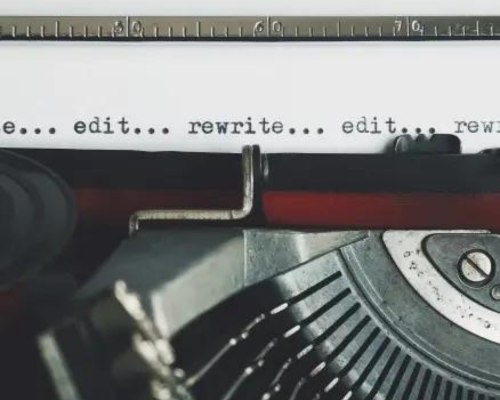Did you spot a typo in this email? Good for you! Here’s a gold star! *
-Sierra Otto, Sierra Winter Jewelry
Even as a professional editor, there are times when I’ve finished up a particularly prickly proofreading job for a client and my first thought is “can someone look over this to see what I missed?!”
We make and leave mistakes in our writing for a variety of reasons, the most obvious one being because we are human. Other times we might not know better. And there’s always autocorrect fails! But that doesn’t mean we have to go quietly into that dark night of blatant mistakes. We can read our own work and we can hire a professional and do our level best to put our best foot forward. Always.
Misspellings and basic grammar errors will likely get flagged by your word processing program automatically. If you’re paying attention, you can correct those as they occur. But there are many common typos and mistakes made when writing that are honestly hard to catch. This is when an editor or proofreader can save the day.
- Word mix-ups. English can be hard. We have plenty of words whose pronunciations or spellings are similar, but whose meanings or parts of speech are very different. Words like accept/except, mute/moot, further/farther, peek/peak/pique, lair/layer can trip up even seasoned writers. Along with your/you’re and there/their/they’re, these words are not always caught by your word processing program automatically. Your editor will know what word goes where.
- Sentence fragments. This is another common issue not flagged in Google Docs or Word. Many authors can catch this issue when reading their work out loud but if you’re inclined to talk in unfinished sentences, it’s harder to catch on your own. Peer reviewers are good at catching incomplete sentences before something goes to print.
- Run-on sentences. Sometimes a sentence can get too long and awkward for your reader. I love a long sentence. But the best way to communicate with others is to shorten those up and check for subject/verb agreement. An editor or peer reviewer is the best way to tighten up your writing. Word or Google Docs won’t do it for you.
- Awkward wording. This can include ending a sentence in a preposition, misplacing subject or verb modifiers, unusual phrasing, verb tense shifts, excessive use of -ing words, etc. You should feel comfortable writing how you speak, but remember when writing, you have the benefit of a delete key and the time to edit what you say. I haven’t found a program yet that can catch an awkward or unclear sentence. But as an editor, I can stand in place of your reader and flag those sentences or phrases for you.
We will never reach 100% perfection on all writing projects. But we should still try our best to communicate clearly. While I believe “done is better than perfect” applies when folding a fitted sheet or loading the dishwasher, I think the phrase can lead to a careless attitude when regularly applied to your business.
Begin by reading your work out loud because this is truly one of the best ways to find mistakes in your writing and your message. But there is nothing quite like a peer or professional editor to take a second look at our work. Trust me, that professional editor is worth every penny. While editors cannot (or should not) promise you perfect or flawless work, we can help you take it to the next level.


0 Comments